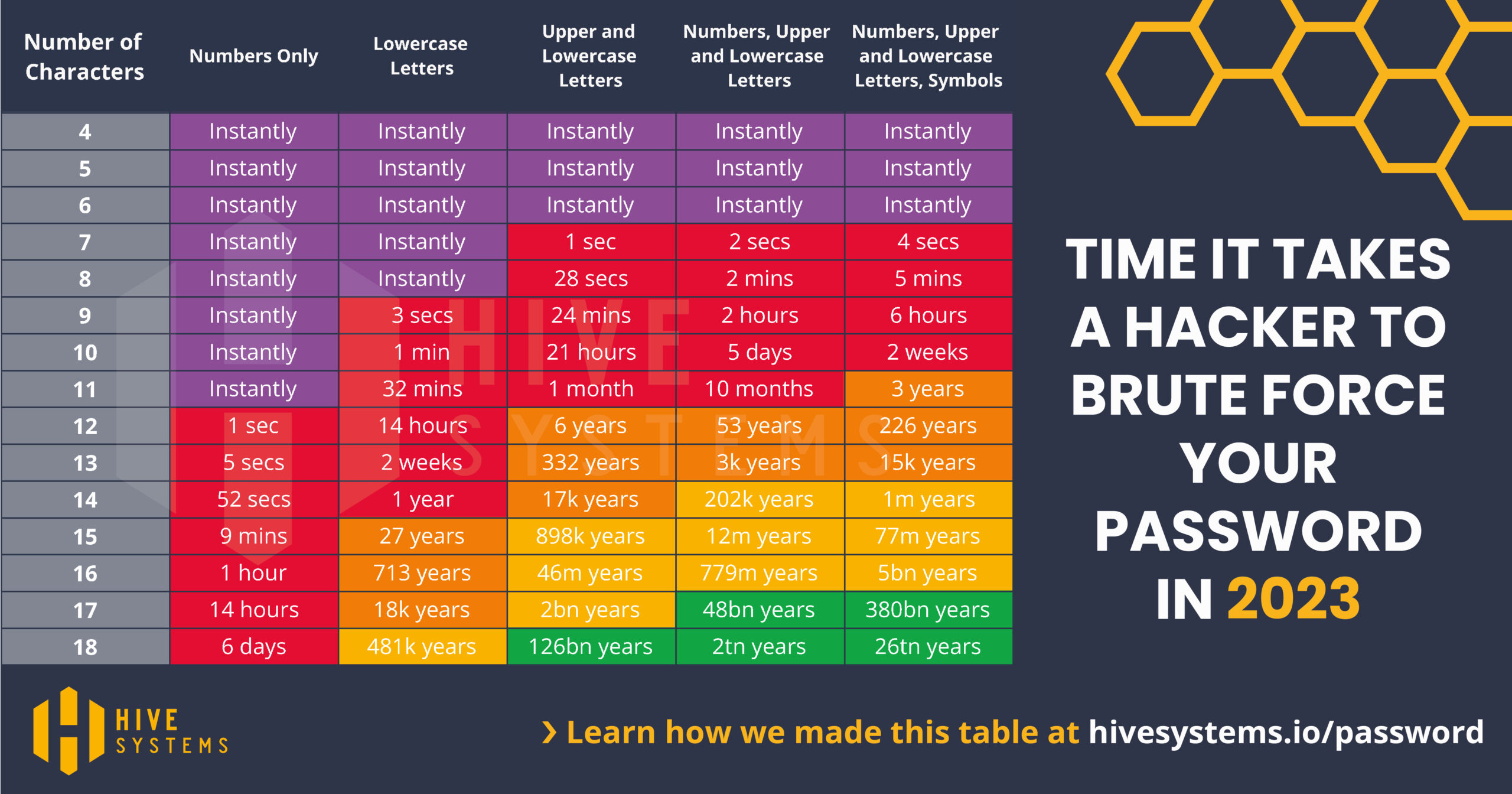In today’s digital landscape, ensuring robust online security is crucial. With cyber threats becoming increasingly sophisticated, relying on a single password is inadequate to safeguard your accounts. It’s time to embrace passphrases as a more resilient and memorable alternative. This article explores the limitations of traditional passwords and highlights why passphrases are the superior choice for enhancing online security.
The Limitations of Traditional Passwords
Traditional passwords have various shortcomings that make them vulnerable to cyber-attacks. They are usually short, simple, and predictable, which makes them easy targets for criminals who employ brute-force or dictionary attacks to crack passwords. Also, users frequently reuse passwords across multiple accounts, which increases the risk of security breaches.
With cyber threats becoming increasingly sophisticated, relying on a single password is inadequate to safeguard your accounts. The image above shows how quickly a password can be cracked based on the amount and combination of characters.
1. Length and Complexity
Passphrases, composed of four or more random words, provide greater length and complexity. This significantly increases the time and effort required for brute-force attacks to crack them. A longer passphrase with a mix of upper and lower case letters further strengthens its security profile.
2. Ease of Memorisation
Passphrases are easier to remember compared to complex passwords. By using real words instead of arbitrary combinations, users can recall passphrases more naturally. The longer length of passphrases facilitates memorable narratives, making user authentication feel less like a chore than with traditional passwords.
3. Increased Resistance to Dictionary Attacks
Passphrases that utilise random word combinations from various sources make it challenging for attackers to crack them using precomputed dictionaries of commonly used passwords. Crafting a passphrase with diverse and unrelated words effectively boosts resistance against dictionary attacks.
4. Compatibility with Multi-Factor Authentication (MFA)
Passphrases are compatible with MFA, which adds an extra layer of security through additional steps like one-time codes, fingerprint authentication, or security questions.
Best Practices for Creating Strong Passphrases
Follow these guidelines to create secure and memorable passphrases:
1. Length is critical: Aim for passphrases exceeding 14 characters, incorporating four or more random words.
2. Unpredictability: Select unrelated words to ensure resistance against dictionary attacks.
3. Personalisation: Customise passphrases for each account by adding unique modifiers or context-specific words. This practice isolates the impact of a compromised passphrase to a single account.
Like this post?
Discover our comprehensive range of security services and expert advice tailored specifically for businesses. From online security and cyber security to document, account, and website security – we’ve got you covered. Stay protected with our trusted solutions.

